Ditapis dengan

Free will, causality, and neuroscience
Neuroscientists often consider free will to be an illusion. Contrary to this hypothesis, the contributions to this volume show that recent developments in neuroscience can also support the existence of free will. Firstly, the possibility of intentional consciousness is studied. Secondly, Libet’s experiments are discussed from this new perspective. Thirdly, the relationship between free will, …
- Edisi
- -
- ISBN/ISSN
- 9789004409965
- Deskripsi Fisik
- viii, 184p. : ill.
- Judul Seri
- -
- No. Panggil
- 123.5 FRE f
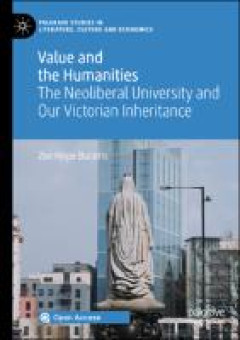
Value and the humanities the neoliberal university and our victorian inheritance
Tracing the shift from liberal to neoliberal education from the nineteenth century to the present day, this open access book provides a rich and previously underdeveloped narrative of value in higher education in England. Value and the Humanities draws upon historical, financial, and critical debates concerning educational and cultural policy. Rather than writing a singular defence of the human…
- Edisi
- -
- ISBN/ISSN
- 9783030378929
- Deskripsi Fisik
- 255 p.; 22 cm.
- Judul Seri
- -
- No. Panggil
- 171.2 VAL v

Public Policy:Why ethics matters
Ethics is a vigorously contested field. There are many competing moral frameworks, and different views about how normative considerations should inform the art and craft of governmental policy making. What is not in dispute, however, is that ethics matters. The ethical framework adopted by policy analysts and decision makers not only shapes how policy problems are defined, framed and analysed, …
- Edisi
- -
- ISBN/ISSN
- 9781921666759
- Deskripsi Fisik
- -
- Judul Seri
- -
- No. Panggil
- 170 BOS p
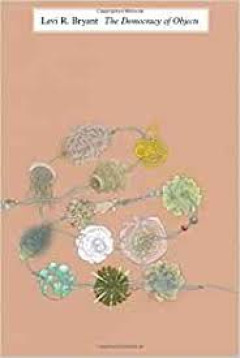
The democracy of objects
In The Democracy of Objects Bryant proposes that we break with the epistemological tradition and once again initiate the project of ontology as first philosophy. Bryant develops a realist ontology, called -onticology-, which argues that being is composed entirely of objects, properties, and relations. Bryant proposes that objects are dynamic systems that relate to the world under conditions of …
- Edisi
- -
- ISBN/ISSN
- 9781607852049
- Deskripsi Fisik
- 1 online resource
- Judul Seri
- -
- No. Panggil
- 150.92 LEV d

Why be moral?
What reasons do we have to be moral, and are these reasons more compelling than the reasons we have to pursue non-moral projects? Ever since the Sophists first raised this question, it has been a focal point of debate. Why be Moral? is a collection of new essays on this fundamental philosophical problem, written by an international team of leading scholars in the field.
- Edisi
- -
- ISBN/ISSN
- 9783110366396
- Deskripsi Fisik
- VIII, 278 p.
- Judul Seri
- -
- No. Panggil
- 170 WHY w
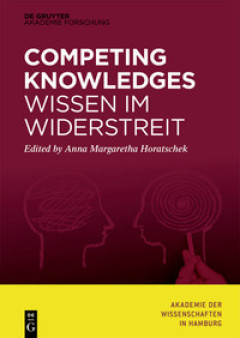
Competing knowledges – wissen im widerstreit
Whatever societies accept as ‘knowledge’ is embedded in epistemological, institutional, political, and economic power relations. How is knowledge produced under such circumstances? What is the difference between general knowledge and the sciences? Can there be science without universal truth claims? Questions like these are discussed in eleven essays from the perspective of Sociology, Law, …
- Edisi
- -
- ISBN/ISSN
- 9783110659658
- Deskripsi Fisik
- X, 220 p.
- Judul Seri
- -
- No. Panggil
- 121 COM c

Competing knowledges – wissen im widerstreit
Whatever societies accept as ‘knowledge’ is embedded in epistemological, institutional, political, and economic power relations. How is knowledge produced under such circumstances? What is the difference between general knowledge and the sciences? Can there be science without universal truth claims? Questions like these are discussed in eleven essays from the perspective of Sociology, Law, …
- Edisi
- -
- ISBN/ISSN
- 9783110659658
- Deskripsi Fisik
- X, 220 p.
- Judul Seri
- -
- No. Panggil
- 121 COM c
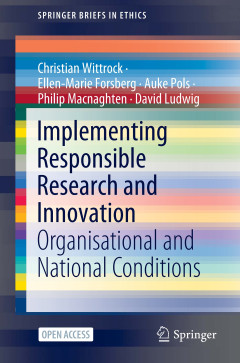
Implementing responsible research and innovation :organisational and national…
The book is an analysis of data collected in the RRI-Practice study. It comprises an organizational analysis and an analysis of national discourses, thus analysing conditions for the uptake of RRI in research funding and research performing organisations in the science system.
- Edisi
- -
- ISBN/ISSN
- 9783030578503
- Deskripsi Fisik
- xix, 120p. : ill.
- Judul Seri
- -
- No. Panggil
- 174.95 IMP i
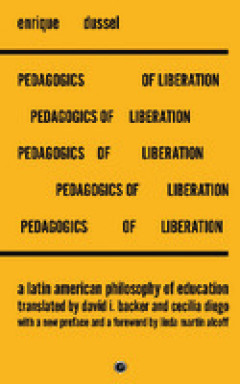
The Pedagogics of Liberation :a Latin American philosophy of education
Enrique Dussel is considered one of the founding philosophers of liberation in the Latin American tradition, an influential arm of what is now called decoloniality. While he is astoundingly prolific, relatively few of his works can be found in English translation — and none of these focus specifically on education. Founding members of the Latin American Philosophy of Education Society David I…
- Edisi
- -
- ISBN/ISSN
- 9781950192281
- Deskripsi Fisik
- 204 p.; 22 cm.
- Judul Seri
- -
- No. Panggil
- 199.82 DUS p

Teaching ethics in organ transplantation and tissue donation - cases and movies
Organ transplantation is a thrilling new option for modern surgery giving hope for chronically ill patients, and, at the same time, stirring controversial ethical questions on human identity and the meaning of the human body. Being a global and transnational endeavor, organ transplantation raises universal ethical concerns and, yet, has to be adapted to culturally mediated believes. In this boo…
- Edisi
- -
- ISBN/ISSN
- 9783941875401
- Deskripsi Fisik
- 88p.
- Judul Seri
- -
- No. Panggil
- 174. 297954 TEA t

Emotions in history:lost and found
Ute Frevert.
- Edisi
- -
- ISBN/ISSN
- 9786155053344(pbk.)
- Deskripsi Fisik
- 255 p. : ill. ; 20 cm.
- Judul Seri
- -
- No. Panggil
- 152.4 FRE e
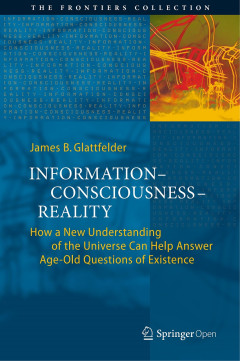
Information-consciousness-reality :how a new understanding of the universe ca…
This open access book chronicles the rise of a new scientific paradigm offering novel insights into the age-old enigmas of existence. Over 300 years ago, the human mind discovered the machine code of reality: mathematics. By utilizing abstract thought systems, humans began to decode the workings of the cosmos. From this understanding, the current scientific paradigm emerged, ultimately discover…
- Edisi
- -
- ISBN/ISSN
- 9783030036331
- Deskripsi Fisik
- xxiv, 662p. : ill.
- Judul Seri
- -
- No. Panggil
- 113 GLA i
A Sensory education:
A Sensory Education takes a close look at how sensory awareness is learned and taught in expert and everyday settings around the world. Anna Harris shows that our sensing is not innate or acquired, but in fact evolves through learning that is shaped by social and material relations. The chapters feature diverse sources of sensory education, including field manuals, mannequins, cookbooks and fla…
- Edisi
- -
- ISBN/ISSN
- 9781003084341
- Deskripsi Fisik
- xx, 184p.: ill.
- Judul Seri
- -
- No. Panggil
- 152.1 HAR s
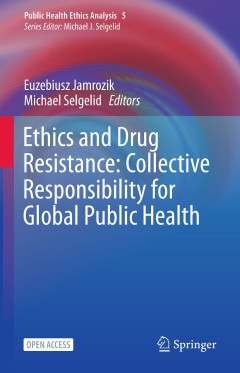
Ethics and drug resistance:collective responsibility for global public health
This Open Access volume provides in-depth analysis of the wide range of ethical issues associated with drug-resistant infectious diseases. Antimicrobial resistance (AMR) is widely recognized to be one of the greatest threats to global public health in coming decades; and it has thus become a major topic of discussion among leading bioethicists and scholars from related disciplines including eco…
- Edisi
- -
- ISBN/ISSN
- 9783030278748
- Deskripsi Fisik
- xvii, 448p. : ill.
- Judul Seri
- -
- No. Panggil
- 171.7 ETH e
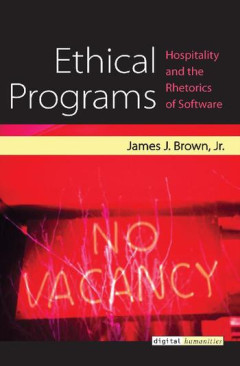
Ethical programs :hospitality and the rhetorics of software
Living in a networked world means never really getting to decide in any thoroughgoing way who or what enters your “space” (your laptop, your iPhone, your thermostat . . . your home). With this as a basic frame-of-reference, James J. Brown’s Ethical Programs examines and explores the rhetorical potential and problems of a hospitality ethos suited to a new era of hosts and guests. Brown rea…
- Edisi
- -
- ISBN/ISSN
- 9780472072736
- Deskripsi Fisik
- x, 217p. : ill.
- Judul Seri
- -
- No. Panggil
- 174.9005 BRO e
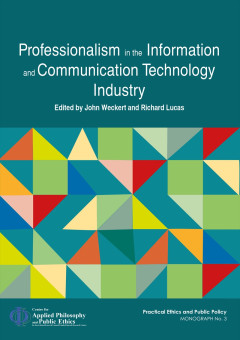
Professionalism in the information and communication technology industry
Professionalism is arguably more important in some occupations than in others. It is vital in some because of the life and death decisions that must be made, for example in medicine. In others the rapidly changing nature of the occupation makes efficient regulation difficult and so the professional behaviour of the practitioners is central to the good functioning of that occupation. The core id…
- Edisi
- -
- ISBN/ISSN
- 9781922144447
- Deskripsi Fisik
- vii, 372p. : ill.
- Judul Seri
- -
- No. Panggil
- 174.93034833 WEC p
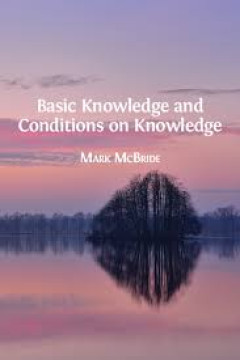
Basic knowledge and conditions on knowledge
- Edisi
- -
- ISBN/ISSN
- 9781783742868
- Deskripsi Fisik
- 238 p.; 23 cm.
- Judul Seri
- -
- No. Panggil
- 121 MAR b
- Edisi
- -
- ISBN/ISSN
- 9781783742868
- Deskripsi Fisik
- 238 p.; 23 cm.
- Judul Seri
- -
- No. Panggil
- 121 MAR b

Behaviour, development and evolution
- Edisi
- -
- ISBN/ISSN
- 9781783742516
- Deskripsi Fisik
- 134 p.; 23 cm.
- Judul Seri
- -
- No. Panggil
- 150.1943 PAT b
- Edisi
- -
- ISBN/ISSN
- 9781783742516
- Deskripsi Fisik
- 134 p.; 23 cm.
- Judul Seri
- -
- No. Panggil
- 150.1943 PAT b

Metaethics from a first person standpoint:an introduction to moral philosophy
- Edisi
- -
- ISBN/ISSN
- 9781783742011
- Deskripsi Fisik
- viii + 124 p.; 23 cm.
- Judul Seri
- -
- No. Panggil
- 170.42 CAT m
- Edisi
- -
- ISBN/ISSN
- 9781783742011
- Deskripsi Fisik
- viii + 124 p.; 23 cm.
- Judul Seri
- -
- No. Panggil
- 170.42 CAT m
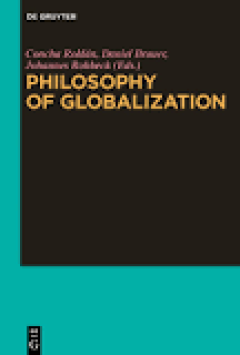
Philosophy of globalization
The aim of the publication is both to provide the debates on globalization with a genuine philosophical perspective by working out its normative dimensions, and to scientifically ground the ethical-philosophical discourse on global responsibility. Other topics addressed are the altering consciousness of space and time, and globalization as a discourse, as an ideology and as a symbolic form
- Edisi
- -
- ISBN/ISSN
- 9783110544671
- Deskripsi Fisik
- 480 p.; 23 cm.
- Judul Seri
- -
- No. Panggil
- 150 ROL p
 Karya Umum
Karya Umum  Filsafat
Filsafat  Agama
Agama  Ilmu-ilmu Sosial
Ilmu-ilmu Sosial  Bahasa
Bahasa  Ilmu-ilmu Murni
Ilmu-ilmu Murni  Ilmu-ilmu Terapan
Ilmu-ilmu Terapan  Kesenian, Hiburan, dan Olahraga
Kesenian, Hiburan, dan Olahraga  Kesusastraan
Kesusastraan  Geografi dan Sejarah
Geografi dan Sejarah